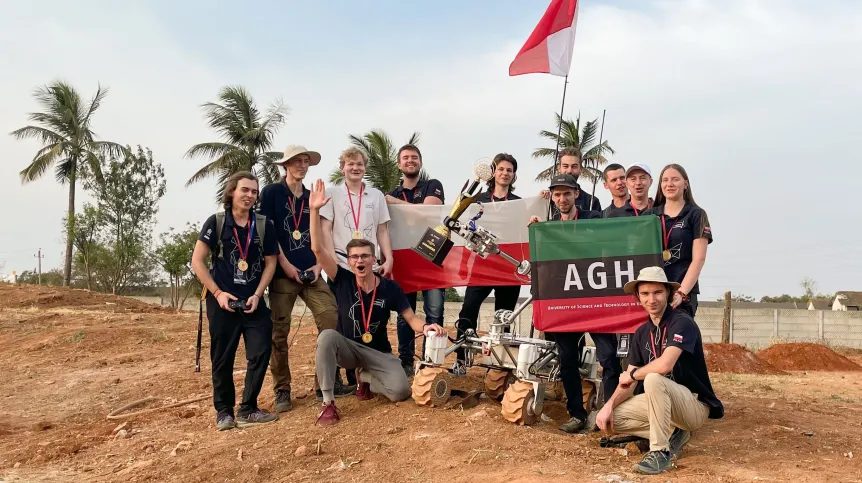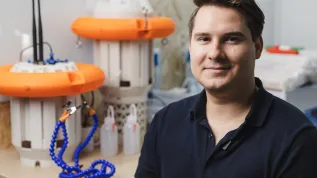
The AGH Space Systems team from the AGH University of Science and Technology in Kraków have won the International Rover Challenge 2023 in India.
One of the largest student planetary rover and space robotics competitions in the world, after four days AGH Space Systems proved the best, beating 17 teams from around the world.
The Krakow team repeated the success from 2020, when they won the IRC competition in India for the first time.
University, Anna Żmuda-Muszyńska, said: “IRC India is part of the series of international robotic competitions – Rover Challenges, but the Asian variant differs from the contests on other continents. To successfully complete all the tasks prepared by the organisers, the rover must have been seriously modified, and the team had to adjust its capabilities to the challenging missions.”
The AGH rover Kalman took part in a number of competitions, the first being the Astrobiology Expedition, which involved exploring several sites, collecting soil samples for later analysis, and checking for life forms.
The next challenge was the Instrument Deployment and Maintenance Operation. The operators, using only the image from cameras mounted on the gripper and mast of the rover, had to use the manipulator to operate a control panel and place an object in a designated place. Then, manoeuvring the rover, they searched the Mars-like surface and precisely positioned the discovered objects in spots marked by the judges.
In the Autonomous Expedition challenge, the rover had to drive through an unknown terrain, where the only indicators were black arrows. The robot had to remember the direction of the arrow and reach the next one, navigating obstacles in its way.
The team also had to give a presentation about project management, engineering solutions and ideas for the planetary rover commercialisation, assuming that the colonisation of the Red Planet has already begun.
The last task was called Reconnaissance and Delivery Operation. Using rover cameras and an app visualising the technical condition of the rover, the operators had to navigate the robot so that it could find hidden objects, photograph them, and then, using its gripper, deliver three objects to a marked location.
“Hard work brought the expected results and now we can fully celebrate the victory of our team. We always put our hearts into our projects. However, without the support we received, we would not be able to achieve these results,” AGH Space Systems said. (PAP)
author: Rafał Grzyb
rgr/ agt/ kap/
tr. RL













